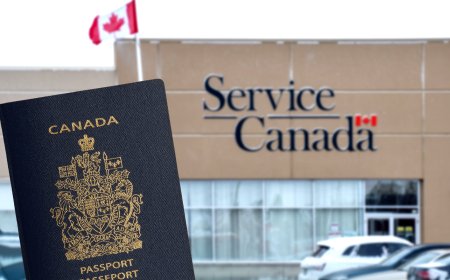How Manitoba's New Pilot Program Can Help Fill Rural Labour Gaps
Discover Manitoba's new West Central Immigration Initiative, a pilot program addressing rural labour shortages with pathways to permanent residency.

Manitoba has introduced a three-year pilot program, the West Central Immigration Initiative, aimed at tackling labour market shortages in the province’s rural west-central region. This initiative is a collaboration between the provincial government, seven rural municipalities, and Gambler First Nation.
Partnering Communities
The following communities will participate in the initiative:
- Municipality of Russell-Binscarth
- Rural Municipality of Yellowhead
- Municipality of Roblin
- Rural Municipality of Ellice-Archie
- Rural Municipality of Riding Mountain West
- Rossburn Municipality
- Prairie View Municipality
- Gambler First Nation
Labour Market Needs
Based on a survey of 85 employers in the region, it is estimated that approximately 240 to 300 workers will be required over the next three years. These roles are critical to fill new positions, accommodate retirements, and sustain growth.
Government Perspective
The initiative reflects Manitoba’s commitment to addressing regional labour demands. The province’s Minister of Labour and Immigration has highlighted the program’s role in fostering economic development and enhancing community growth. The minister emphasized that the pilot aligns with the province’s goal of welcoming skilled workers to rural Manitoba, thereby ensuring sustainable development.
Building on Regional Success
This pilot complements existing regional immigration programs in Winkler-Stanley, Morden, and the Parkland region. The province plans to collaborate with other rural municipalities to expand similar initiatives in the future.
Understanding Immigration Pilots
What Are Immigration Pilots?
Immigration pilots are temporary programs designed to address specific regional or sectoral labour shortages. They involve collaboration between federal, provincial, and local governments to meet the unique needs of targeted areas or industries.
Eligibility criteria vary but often include job offers, work experience, language skills, and educational qualifications. Successful pilots may evolve into permanent programs. For example, the Atlantic Immigration Program was established after the success of its pilot predecessor.
Key Features of Immigration Pilots
- Focused on specific regions or industries.
- Introduced for a limited duration.
- Can transition into long-term programs if proven effective.
How Pilots Differ from Provincial Nominee Programs (PNPs)
While both pilots and PNPs support Canada’s immigration goals, they have distinct characteristics:
- Immigration Pilots are time-bound and focus on specific labour shortages or industries.
- Provincial Nominee Programs are ongoing and cater to broader economic needs across entire provinces or territories.
PNPs remain a cornerstone of Canada’s immigration framework, allowing provinces to nominate individuals for permanent residency based on their economic priorities.
This initiative underscores Manitoba’s proactive approach to labour market challenges while reaffirming its reputation as a welcoming and forward-thinking province.
What's Your Reaction?
 Like
0
Like
0
 Dislike
0
Dislike
0
 Love
0
Love
0
 Funny
0
Funny
0
 Angry
0
Angry
0
 Sad
0
Sad
0
 Wow
0
Wow
0






































































